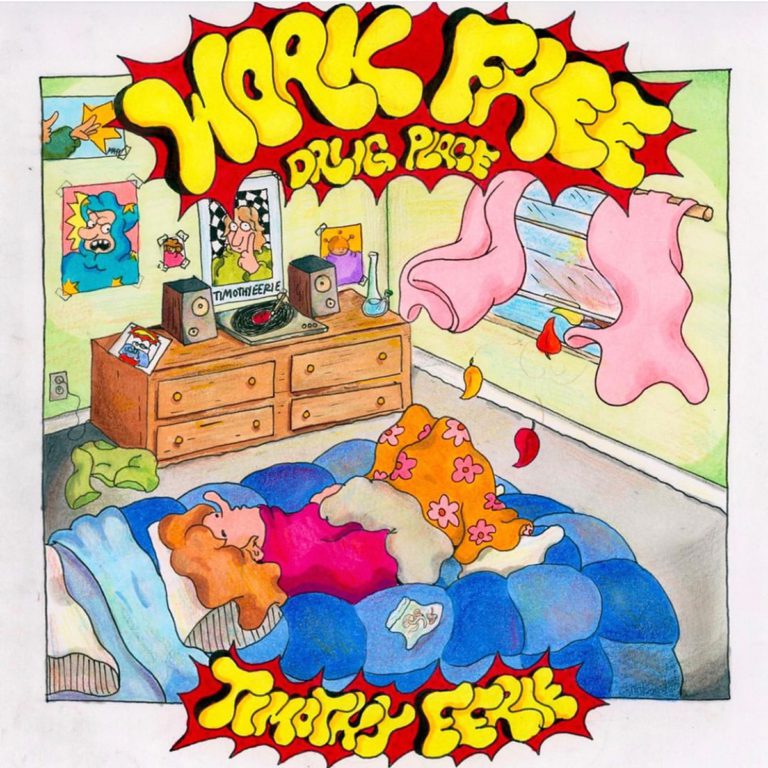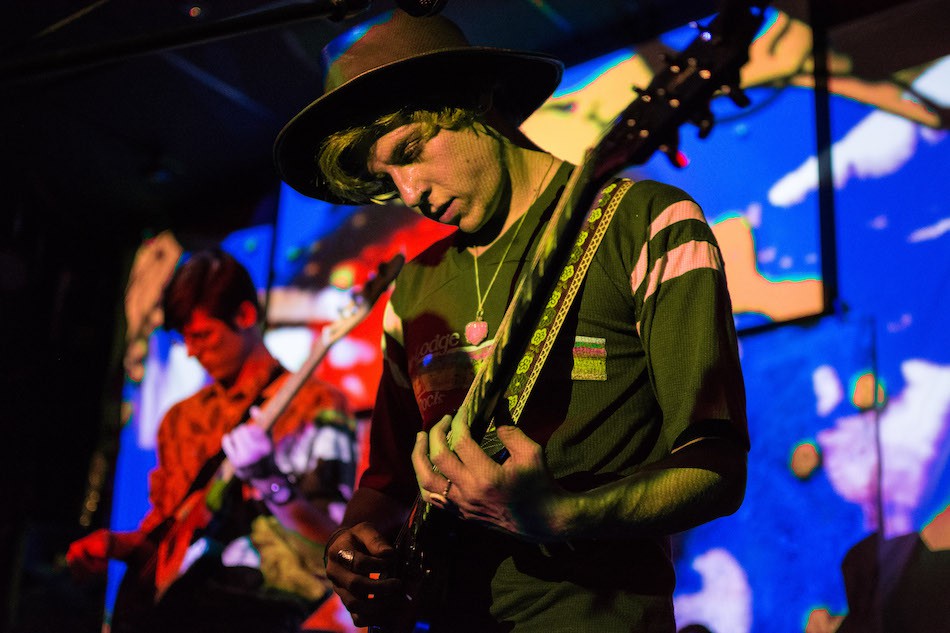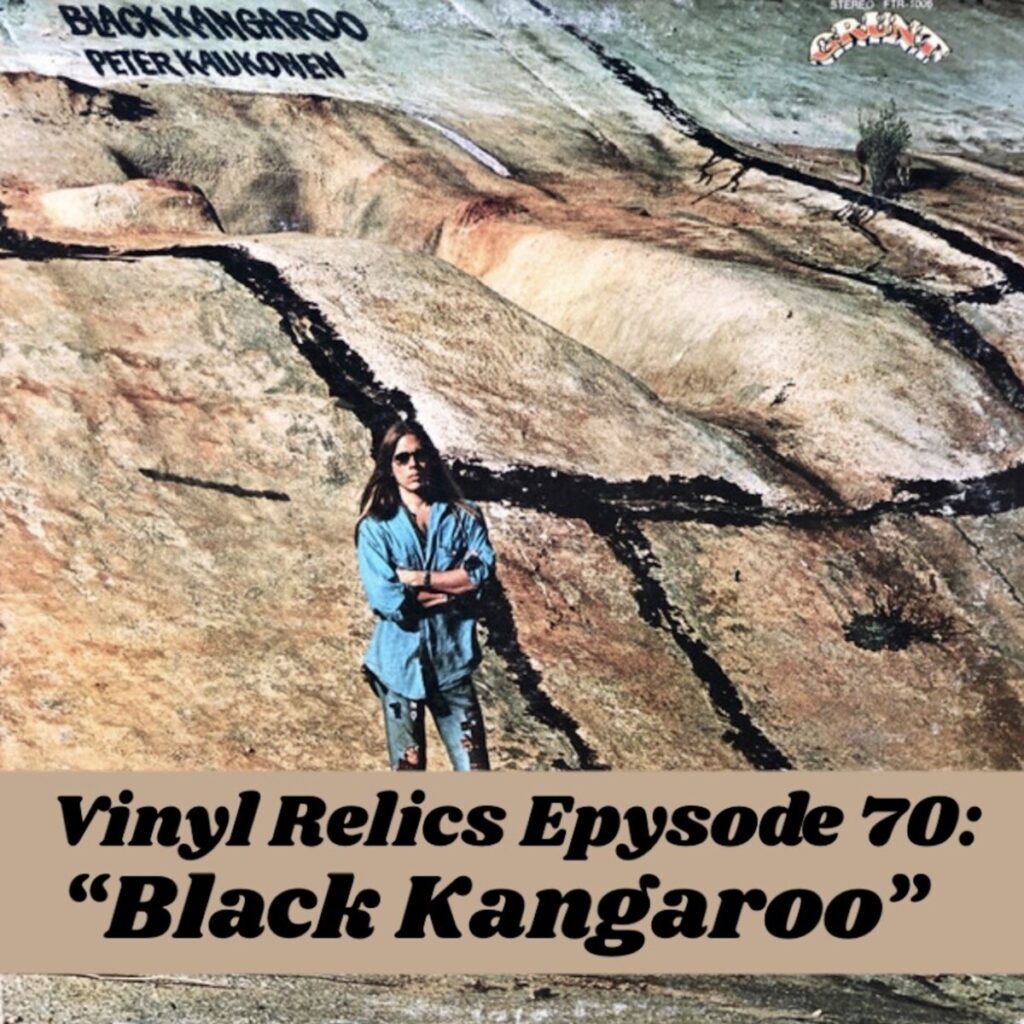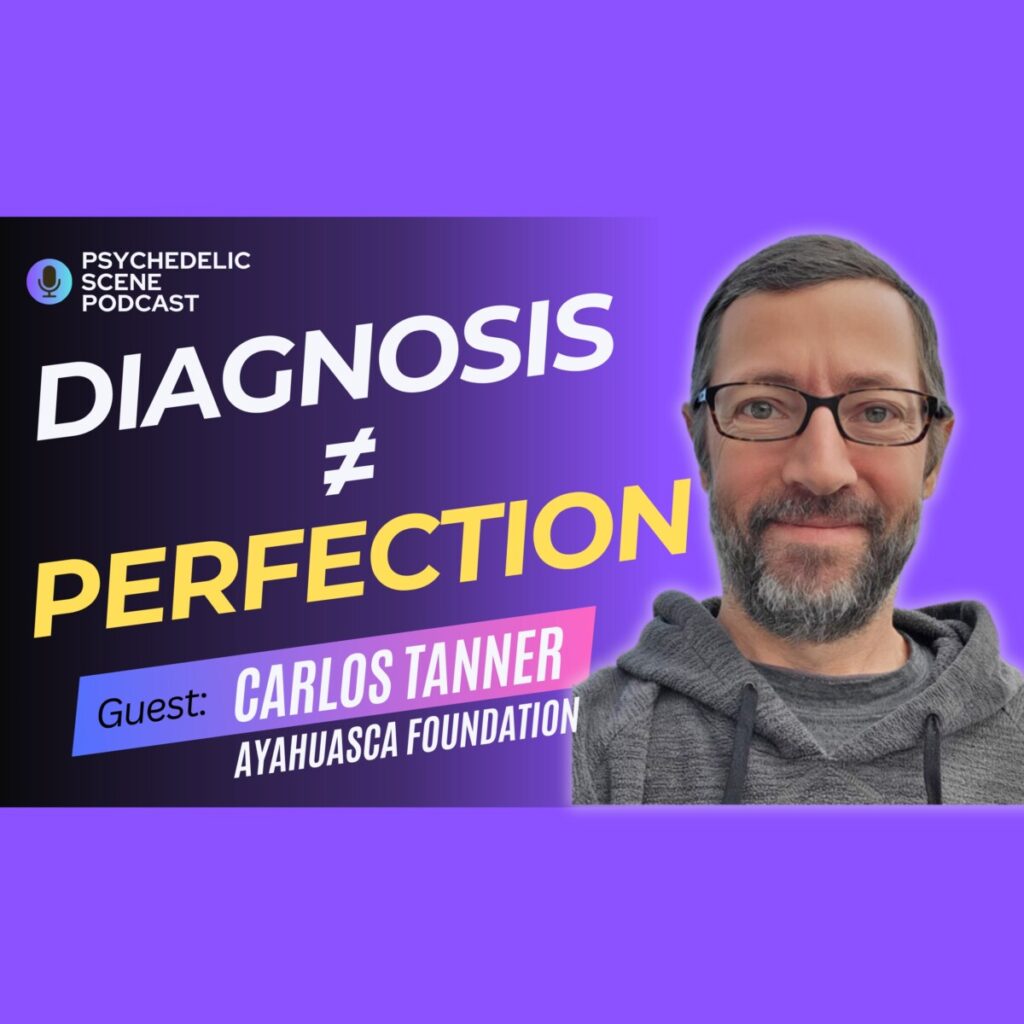Interview: Timothy Eerie
Interview: Timothy Eerie
It’s no accident that the name Timothy Eerie is so close to Timothy Leary, this is the aural equivalent of two tabs and a trip down the rabbit hole. Where the ethereal meets the visceral is where you will find Timothy Eerie. With dreamy, hazy melodies accompanied by thick tones and rock ‘n roll noise, this band is the epitome of multi-faceted sound. Like many of the bands stemming from the psychedelic genre, there has been a revolving door of players and artists contributing to the project, which only lends to their mystique.
Todd Goldfinger for Psychedelic Scene:
Hello and welcome to Psychedelic Scene Magazine. We’re here today with a very special band. Timothy Eerie, welcome.
Timothy Eerie:
Hey, thank you. Nice to meet you.
Goldfinger:
Yeah, great to have you on. So many questions for you. Timothy Erie, where did the band name come from? Where are you from? Things like that.
Timothy Eerie:
Yeah, the band name is a wordplay on Timothy Leary, so that’s where that came from. It’s kind of confusing. Not everybody gets it at first. A lot of people get it, but most people might not know who Leary is. Oh, I’m getting a call. Let me ignore them real quick. Hold on. Sorry, I’m doing this on my phone. Timothy Leary was pretty psychedelic guy. I thought it was fitting. And I’ve always liked band names that were sort of like a wordplay on somebody’s name. I just think it’s like not that serious. So I’ve always kind of resonated with it. And we’re based in Orlando, Florida. I’ve been living here for a while now. I was based in Austin for a little bit in 2018, had some different band members playing with me at that time and ended up back in Orlando. And that’s where I’m at now.
Goldfinger:
That’s cool. How did you recruit the band members? How did it all come about to bring the band together?
Timothy Eerie:
Yeah, I was playing in this blues cover band actually, with a couple of my friends and we were jamming a lot. Our drummer Mike, we would carpool to the gigs. One night I showed him some of the stuff that I was recording, so they were just like the first Timothy Erie demos, and he really dug it. He was really supportive and he’s like, “we got to start a band, man”. So that’s kind of where it started. Mike and I were jamming out the songs. He had a lot of musician friends that he introduced me to. So we started building up the lineup from there, and since then it’s evolved quite a lot. So many people have kind of come and gone in the project and it’s all sort of depended on what I was trying to do musically at any given moment. Right now we’re playing as a four piece, just two guitars, bass and drums, kind of leaning more into a rock or punk approach to the songs. But there have been times where it was a huge, it was just like a bigger band. We backup singers, tambourine player keys. And that was kind of more of like a psychedelic feel.
Timothy Eerie:
I don’t know. I’ve just been doing it for so long that I like to have different people play in the project. Just to keep everything feeling fresh. The songs are a little bit different depending on who’s playing with me. It’s just kind of a fun way to do it. So you meet people over time in the scene that you’re playing in, and it happens pretty naturally with people joining the band.
Goldfinger:
What was your inspiration for the album? I love the name of the album: Work Free Drug Place.
Timothy Eerie:
Well, hey, that’s the dream, man. That’s the dream. Yeah. I don’t know. As an artist, I’ve always felt like it’s always been like a fantasy of mine to be able to just work on music and experiment with different drugs and come up with ideas for songs in this kind of music. I think that those things go hand in hand. Creativity and altered states of mind and of consciousness. It’s supposed to be funny, but realistically, it’s sort of like this utopian thing of just being. Living a life where you can just be creative all the time and work and a job and all these things sort of have felt like they’ve gotten in the way of my creative output. But, of course, you have to do the things. You got to pay the bills, keep the lights on. So that’s the idea for the name of the album. But the music itself was sort of. It just came from. Basically been working on some of these songs for years, and I didn’t necessarily think I was going to put it on an album, but I was just writing and I was recording and I was trying different stuff, and it would sit on my computer for a while.
Timothy Eerie:
A couple of years later, I’d come back to it and add things. Maybe I’d start the whole thing over and re approach it. Maybe take one section of a song and then rebuild the whole song around that one section that I really liked. So I just kept working on tunes and demoing things out and writing, and probably around, I guess, maybe 2021. Towards the end of the year, I started looking at the library of music that I’d created and thinking that it was enough for an album. And I hadn’t put out an album since 2019, so the idea of it really appealed to me. I love albums. I love listening to albums start to finish, and I feel like that’s kind of like a dying art. But, yeah, at that point, I realized I had enough material, and I didn’t necessarily think all the songs were really cohesive because I’d written them over the course of such a long period of time that it really went all over the place. And there was, like, a handful of tunes that I had just written that we took into a studio that I felt were even different from stuff that I had done a couple of years prior.
Timothy Eerie:
But I like the idea of that, and I like albums that are all over the place. Kind of feels like a roller coaster and less of just like every song sounding the same. So that’s kind of how I was able to stitch it all together and make it into a thing that hits a lot of different genres, I think, or subgenres within psych music. And then it just kind of came together and I felt like the title was kind of reflective of that, too, this idea of experimentation in your life and in your music and what you do.
Goldfinger:
Excellent. Very cool. And as a fellow musician, there’s so many questions I want to ask you about that, because in today’s day and age, to make it as a musician, what is it like? How is it to tour, to do things like that in 2023?
Timothy Eerie:
Yeah, man, it’s a lot of work. There’s a lot to do. People probably don’t realize it, but it’s rewarding.
Goldfinger:
That’s what I want to show the people.
Timothy Eerie:
Yeah, cool. Yeah, no, I’d love to share a little bit about it. We’re pretty independent. We’ve worked with different record labels since we started releasing music, and that’s always been helpful. But besides that, I do a lot of the legwork. I write the songs, I record most of it and finance a lot of it myself, too. There’s so many expenses that go into it, whether it’s mixing and mastering a record or acquiring the gear. Touring can be challenging, too. I booked the tours for the most part. We’ve been doing it long enough where I could kind of rely on promoters in different towns that have seen us and that dig us and want to help us out. So that’s taken some of the burden off of my shoulders. But, yeah, it’s a lot of work. Basically, you come up with tunes, you find people to play them with you. There’s rehearsals, there’s booking shows, playing the shows. All of this stuff is really time consuming. And then you want to record it and have something released that people can listen to online so that you can have new songs to play at shows. Living in Orlando and playing in Orlando for.
Timothy Eerie:
So, uh, we have a lot of the same people come and see us every time we play, and it’s like you want to try different stuff and keep it fresh. So just like always trying to come up with new ideas. And so that’s the cycle you’re writing you’re recording, releasing, and then trying to tour to help promote the new music. So that alone it takes up a lot of time and it takes a lot of effort and commitment. But I love to do it, and I feel like I’ve harnessed a lot of the skills that are required to make all that happen, and I’m just grateful to be able to do it and that people are still into it. I mean, if people weren’t into it, I don’t know if I would still be doing it. But it seems like there are people that like to check it out and like to stay up to date and like to follow us. We’ll keep on plowing through, but it is a lot of work and it can really consume you sometimes. It’s important to just, I think, have a good perspective on everything so that you don’t really have the fun stuck out of it with all the work that goes into it.
Goldfinger:
Good advice. Very good advice. Now, the album is great. I really enjoy the mantras and how the songs sort of interweave a bit. What were some of the songs?” Toad Venom”, “Sapphire Eyes”, “Your Own Trip”. Even the Beatles cover “Get Back” is really good. “I Won’t Hurt You” and “Higher Than You”, to name a few of the tracks
Timothy Eerie:
That was almost all of them.
Goldfinger:
Oh, really? Okay.
Timothy Eerie:
There was a lot of.
Goldfinger:
Okay, like the musical inspiration, like, I heard. Yes, a little bit. I heard so many different inspirations and a very original band. Timothy Eerie, I dig it.
Timothy Eerie:
Yeah, I mean, it’s hard. Well, not that it’s hard, but I can only sound like myself. I have a lot of influences and I think they can be perceived, obviously, with covers. Like, I love the Beatles and I love the West Coast Pop Art Experimental Band. The song “I Won’t Hurt You” is a cover by them, but some of the bigger influences and some of the people that I wanted to reflect with my music and with this album would be like Roky Erickson of the 13th Floor Elevators, Skip Spence of Moby Grape. And he has a great solo album, too. Obviously, I paid homage to him with my song Skip Spence, which is like kind of a storytelling of his crazy life that he lived. Syd Barrett, Pink Floyd-era stuff. These guys all have albums that I’ve spent so much time listening to, and they’re some of my favorite records. And I also feel like they were a little all over the place, in a good way, in a way that kind of kept you on your toes. They were unpredictable. You never really knew what was going to come next. If you listen to Piper at the Gates of Dawn.
Jen Cray
Timothy Eerie:
It’s just like every song is from another universe or something, and somehow it all kind of comes together in this perfect little package. So those are the musical inspirations. I mean, I love 60s psych pop, really obscure, like acid tapes, and more modern day bands that I’m into that I find honestly just as inspiring are like the OSees and King Gizzard and the Lizard Wizard is like, top two. Love Ty Segall. Those are bands, and there’s a couple others, too, actually, I’d like to name. Foxygen made a really big impression on me when they were around. And also the Brian Jonestown Massacre. There have been different times in my musical life where I’ve found a band that I’ve fallen in love with, and it’s completely changed how I look at music. The Brian Jonestown Massacre is perfect example because their musicality or their technique is so amateur. I don’t mean that in an offensive way. It kind of is inspiring because it makes you feel like their driving force is their creativity, their songwriting, their taste. And it’s not so much about how hard they can shred or how many notes or chords are in each song. It’s more about this sort of creativity.
Timothy Eerie:
It’s sort of hard to pin down what it is that’s so good about those bands, and that’s what I really like about it. But yeah, those are my musical heroes, and I hope that maybe my stuff kind of sounds like them or is inspired by them. It’s kind of hard for me to say. It’s so subjective, and I can’t really look at my own music the way that other people can hear it. So it’s hard for me to say, but I love all those guys.
Goldfinger:
That’s great. And what is ahead for Timothy Erie?
Timothy Eerie:
Right. What’s coming next? Just kind of like continuing the cycle. I’ve got a new EP that I recorded and I’m trying to finish right now. I’ll probably come out with that in the spring. We did South by Southwest for the first time this past year. Would love to come back out there, so that’s a possibility. Probably continue doing, like, regional and national touring. What I would love to do, if anybody’s listening, is go on tour with a bigger band and do some supporting tours. We’ve done a few in the past with La Luz and Surfer Blood and some other bands. It’s been really cool, but I would love to just connect with other bands and find bands that we align with and just connect with them, collaborate and play with them at this point. That’s the most rewarding thing that we’ve been up to lately, is just, like, finding other people that maybe sound like us or maybe are interested in the same kind of stuff as us and linking up, booking a show, playing in their town, having them come play where we live. And so I would love to just do more of that.
Timothy Eerie:
I just want to write more music. I saw so many ideas for songs, and I would love to take it in some different directions. And I just hope to grow musically and, I don’t know, gain more fans, gain more people that are like minded.
Goldfinger:
Excellent. So thank you for being on the program. Is there anything else you’d like to say to the audience in closing?
Timothy Eerie:
Jeez, yeah. It’s all about the art, the artistry of it, and real art. And real music is transporting. It takes you somewhere else. And I think everybody should have a creative outlet, and I feel like that should be the goal. If you want to make something worthwhile, you got to make stuff that you like and that will transport people. And anything outside of that is just bullshit.
Goldfinger:
Right on. Thank you for being on the program. This has been Psychedelic Scene Magazine.
Timothy Eerie:
Thanks, man.
Goldfinger:
Thank you.
Gallery
Recent Articles
Vinyl Relics: Black Kangaroo by Peter Kaukonen
•
February 21, 2026
Podcast–Carlos Tanner
•
February 18, 2026

Loading...




